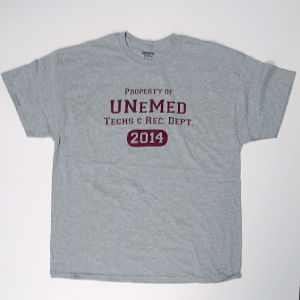From the Lincoln Journal-Star
LINCOLN, Neb. (Nov. 28, 2011)—Nebraska has long lagged behind the rest of the nation when it comes to financing for startup businesses.
More than one ranking has put the state near the bottom — or in some cases at the bottom — in venture capital funding. And other forms of financing such as angel investments and seed capital also can be hard to find.
But that may be changing.
Within the past few months, nearly $60 million in new public and private funds has become available for startup and other small businesses.
Nebraska Global Investment Co. — a venture capital firm that finances the creation and development of software companies in Nebraska — earlier this year closed its fund at $37.3 million, about $7 million more than it hoped for and about $10 million less than it could have raised.
Add to that more than $21 million in federal and state money targeted at startup companies, entrepreneurs and innovation, and you’ve suddenly got a bigger pot.
“It’s a good problem to have,” said Dan Hoffman, executive director of Invest Nebraska. The nonprofit group has a contract with the state to create angel investment funds to match a one-time infusion of $12.6 million from the federal government.
Of the money, $9 million is for loans for existing startup companies, and $3.6 million is for equity or convertible debt investments in startup companies that must be matched by private angel fund investments.
The idea of states taking equity investments in startup companies may seem like a new or novel idea, but it’s actually something that has been going on for several years.
“Most of the other states have been doing this for quite some time,” Hoffman said.
The reason the state is stepping forward now is because an economic study showed Nebraska officials what those in the business community have known for a long time: The state lags in financing opportunities for startup companies.
The Battelle Institute study recommended the state come up with an angel investment tax credit and help facilitate the formation of a private sector-driven innovation and technology development organization, as well as create a private sector-driven venture financing entity.
Gary Hamer, the interim director of the Nebraska Department of Economic Development, said the state took the Battelle recommendations very seriously.
The Legislature approved a tax credit for angel investors, and the state nearly quadrupled the amount of money available to startup companies and early stage businesses.
Hamer said it’s not really any big change in the way the state goes about economic development, as it has always had a big emphasis on helping small, homegrown businesses.
But people usually hear only about the economic development “home runs,” such as PayPal in LaVista and Verizon Wireless in Lincoln.
“Over time, if you put enough money into startups, you’re gonna have some home runs,” Hamer said.
Whether the recent infusion of money is enough is up for debate.
Patrick Smith, the chief operating officer of Nebraska Global and one of its founding partners, said the nearly $60 million “really does not scratch the surface” of the available capital that’s out there.
“There is significantly more capital available in the state than this, including early funders for startups,” Smith said. “The difference (with the new money) is more publicity, legislation and general public acknowledgment around wanting more startup activity and entrepreneur activity.”
Smith said the federal and state money will fill a niche in early funding rounds when a business may be too small to appeal to early stage investors such as angel investors. Also, the matching funds for seed capital investments can act as a multiplier for smaller investments.
“If there is a small round on a very early stage idea, doing some matching funds made available from the feds or state can be beneficial,” he said. “However, the dollars become less meaningful when you have substantially larger rounds or are in later stages of investment.”
Smith, however, said he’s also concerned about how the government money will be spent.
Specifically, he said, he’s concerned it may not generate additional business activity and instead will go to companies that have been turned down by other investors.
“I would hazard a guess that any loud voice regarding the lack of capital available, in part, came from people who sought capital with poor ideas and businesses that never should have received any funding,” Smith said.
“It will be an interesting retrospective on the use of dollars if they go toward deals that all others have passed on for good reason. I would love to think we are wrong and that a lot of additional successful activity is created, but I am not certain how to reconcile how that may happen at this point.”
Hoffman of Invest Nebraska said that’s where his organization comes in.
“That’s the reason why the department has partnered with Invest Nebraska,” he said.
The organization’s board of directors has venture capitalists, entrepreneurs and others with the necessary expertise.
Hoffman also said that similar state government-nonprofit partnerships in other states have proved successful.
Federal money (one-time funds that the state has two years to use)
Nebraska Progress Loan Fund: $9 million
Nebraska Progress Seed Fund: $3.6 million
State money
Nebraska Operational Assistance Act: $250,000
Nebraska Economic Gardening Program: $200,000
SBIR Initiative: $1 million
Nebraska Innovation Fund: $3 million
Nebraska Research and Development Program: $2 million
Microenterprise Technical Assistance: $300,000
Microenterprise Financial Assistance: $700,000
InternNE Internship Grants: $1.5 million
Source: Invest Nebraska
Related Documents
Related Links










